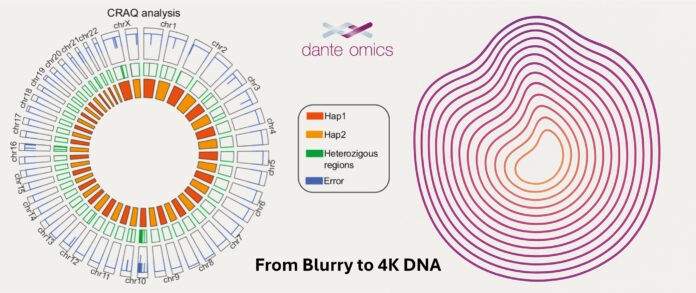NEW YORK– Dante Omics AI, in collaboration with Rockefeller University, the Giunta Lab, Sapienza University, the University of Tennessee, Trieste Area Science Park, and the University of L’Aquila, announced the successful assembly of a near-complete human diploid reference genome for the RPE-1 cell line, one of the most widely used models in molecular and cellular biology. The results have been published in Nature Communications.
The project achieved unprecedented accuracy—up to 99.9999% on multiple chromosomes—delivering the most comprehensive reference-quality blueprint of the RPE-1 cell line to date. This breakthrough provides a fully phased diploid genome that captures both maternal and paternal DNA, offering new insights into complex genomic regions such as centromeres.
“Imagine trying to debug software when the source code is missing critical lines,” said Andrea Riposati, CEO of Dante Omics AI. “Now we have a precise source code for RPE-1 cells—down to the most complex, previously hidden regions of DNA like centromeres. This new reference genome is a game changer for biotech firms advancing cell engineering and CRISPR gene editing.”
The RPE-1 cell line is one of the top three most widely used worldwide, underpinning research in cancer biology, genetics, and drug development. By integrating short-read and long-read sequencing technologies, including PacBio and Oxford Nanopore platforms, the team delivered the first high-accuracy diploid assembly of this critical research model.
“We thank the Giunta Lab and our partners for this exciting project,” added Riposati. “This achievement sets a new benchmark for reference genomes and will accelerate discoveries in cell engineering, genomic medicine, and beyond.”


